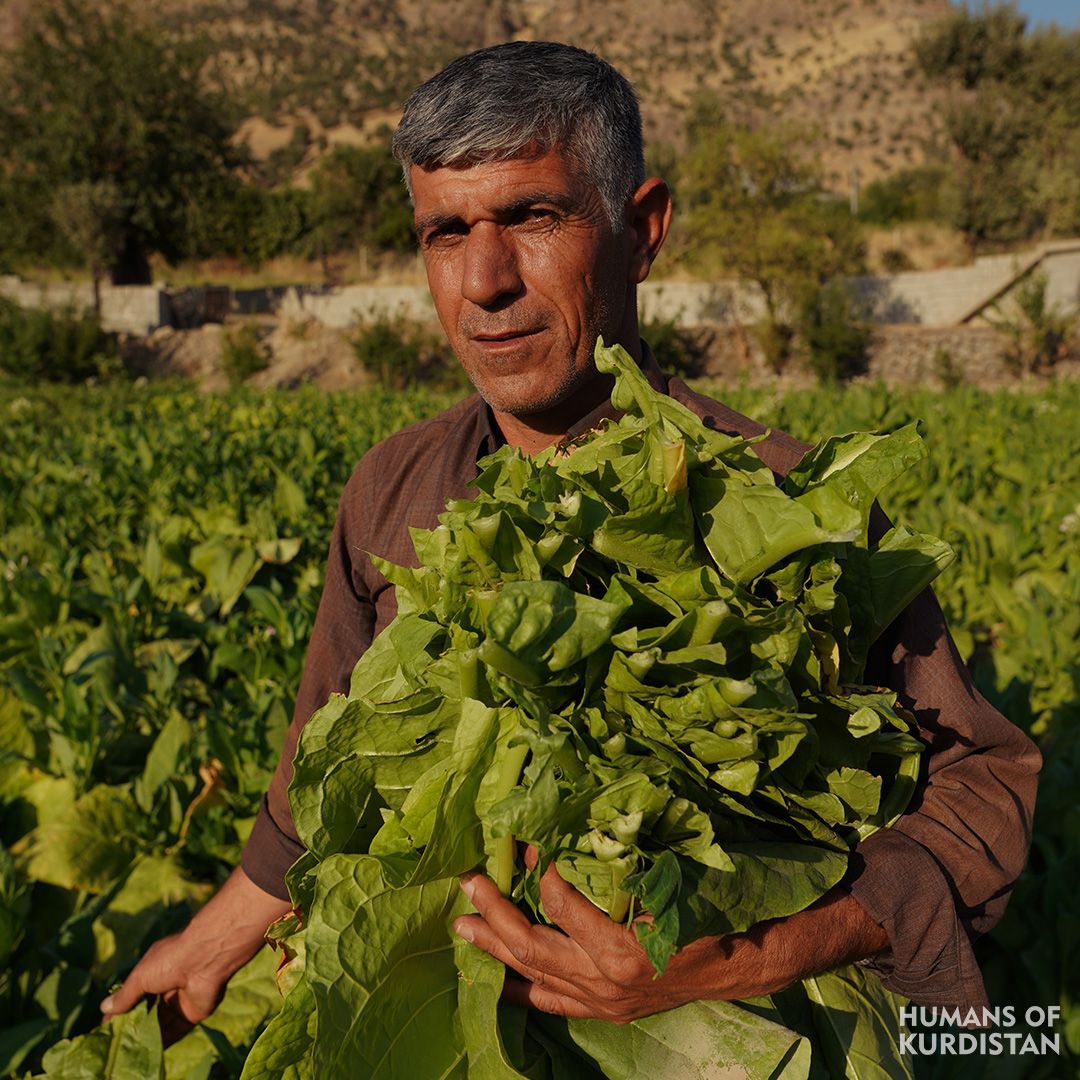October 8, 2020
“After people started to go back to their villages, we were happy about one thing, and that was harvesting tobacco. Harvesting tobacco is a tradition in our village and it has always helped it financially. Each year, one hour worth of machine work goes into our fields, in which I’m able to plant about 200 trees. Since we harvest it from trees, it is better to count the trees. The process starts in spring, we start planting and then on March 15th we cultivate the land and both males and females start working. The males cultivate the land and make it ready for the females to plant the tobacco seeds. Then, it takes about 15 to 20 days until the tobacco starts to grow, and we start topping and suckering in three different stages. Finally, in about 15 to 20 days the tobacco is ready to be harvested.”
“There are several types of tobacco, for example Faqe Hawez, scented tobacco, Be Shama, and Base Shal. Scented tobacco especially exists in Zewa, Hartal, and Shira. Be Shama exists in Nwawa and Dwawa. Base Shal is Bitwen’s specialty. The best type of tobacco is the scented tobacco of Zewa as it’s made on world standard quality. The Saids use it and if it is harvested well and is well taken care of, it could cost up to $100 per kilo. About 40 or 50 years ago people used to visit the villages to bring Qasp dates and soap to trade with tobacco flowers. The dates were called the Kurd killer Qasp and they used to bring it in 30 kilo batches. The reason behind the naming is because the Arabs didn’t eat this type of Qasp, they only used it to feed their animals. However, since we didn’t have much to eat and were not familiar to other types of dates, we really liked it. The tobacco leaves are usually hung on metal bars, but the flower is taken off and rested on a hotbed to be dried.
We are very happy with our work, and despite the fun we get out of it since we do it in groups, it has a good financial return for us.”


